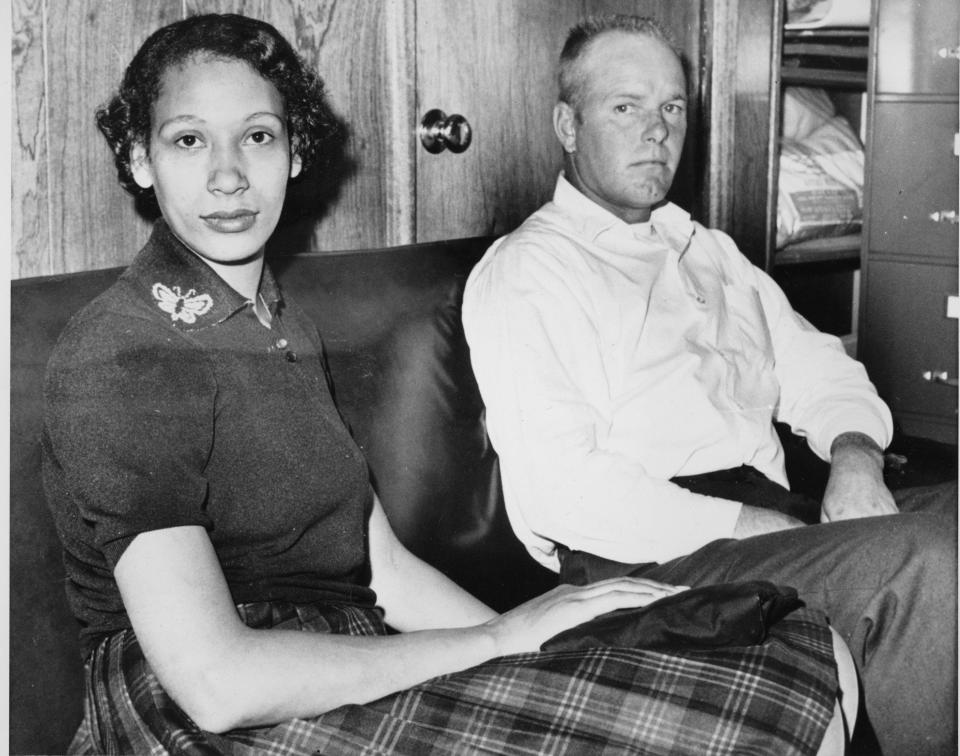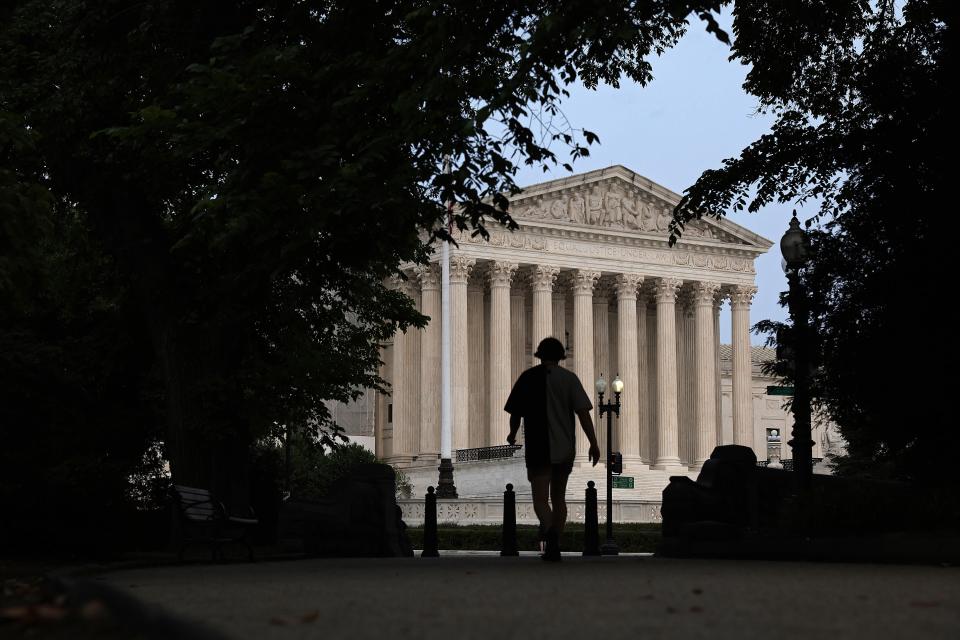Happy Loving Day. Here's how Richard and Mildred Loving upended interracial marriage bans
- Oops!Something went wrong.Please try again later.
- Oops!Something went wrong.Please try again later.
WASHINGTON − A Virginia judge gave Richard and Mildred Loving a choice in 1958: The couple could serve a year in jail for violating a state ban on interracial marriage or they could move away for 25 years.
The Lovings opted for a third choice: They appealed to the U.S. Supreme Court.
In a decision celebrated every June 12 as Loving Day, the nation's highest court ruled that bans on interracial marriage that were in place in 16 states at the time violated the equal protection and due process clauses of the Fourteenth Amendment. The day is named for the landmark decision, Loving v. Virginia.
"Under our Constitution, the freedom to marry, or not marry, a person of another race resides with the individual, and cannot be infringed by the state," Chief Justice Earl Warren wrote for a unanimous court. "The freedom to marry has long been recognized as one of the vital personal rights essential to the orderly pursuit of happiness by free men."
In the five decades since the decision, interracial marriage has increased dramatically. In 2015, one in six newlyweds had a spouse of a different race or ethnicity, which is more than five times higher than the number of intermarried newlyweds in 1967, according to Pew Research Center analysis of U.S. Census Bureau data.

What is National Loving Day?
More than 30 years after the Loving v. Virginia decision, designer Ken Tanabe learned of the monumental ruling while in graduate school at Parsons School of Design. He said he was intrigued by the case because of his own interracial heritage and made it the subject of his graduate thesis project.
That project grew into Loving Day, a holiday Tanabe said is celebrated around the country and the world. Loving Day has been officially recognized by a handful of states and cities including Virginia, Vermont, New York City and Los Angeles, and civil rights organizations like the Anti-Defamation League.
Tanabe said the name is "not just a reference to a real couple who fought racial injustice, it also represents the love that we give to each other."
What happened to Richard and Mildred Loving?
In 1958, Mildred Loving got pregnant and the couple traveled to Washington, D.C., to get married. They then returned home to Caroline County, Virginia, and not long after, they were awakened in the middle of the night by policeman who informed them they were breaking the law.
They were jailed on charges of unlawful cohabitation and offered a choice: Continue to serve jail time or leave Virginia for 25 years. The couple chose the latter and left the state.
It wasn’t my doing,” Mildred Loving told the Associated Press in 2007. “It was God’s work.”
Richard Loving died in a car crash 1975. Mildred Loving died in 2008.
Why was Loving v. Virginia back in the news recently?
When the Supreme Court overturned Roe v. Wade last year, it noted abortion isn't explicitly included in the Constitution. But some advocates pointed out the same is true for many other rights millions of Americans take for granted: The right to same-sex marriage, the right to access contraception, the right to privacy, among others. Those rights were grounded in the 14th Amendment in the same way that abortion was.
Among those is the right to interracial marriage.
Justice Clarence Thomas used a concurring opinion last year to call on the Supreme Court to "reconsider" some of those rights established by the high court. Thomas, who is himself in an interracial marriage, didn't mention the Loving decision among those he thought worth revisiting − an omission that was noted by his critics.
The court's majority opinion by Justice Sam Alito said the difference is that none of the other precedents involved the "critical moral question posed by abortion." Justice Brett Kavanaugh also mentioned Loving in a concurrence in last year's abortion decision, asserting that the precedent and others like it would remain in place.
"I emphasize what the court today states: Overruling Roe does not mean the overruling of those precedents, and does not threaten or cast doubt on those precedents," Kavanaugh wrote.

Contributing: Associated Press
This article originally appeared on USA TODAY: What is National Loving Day? The important history behind June 12

